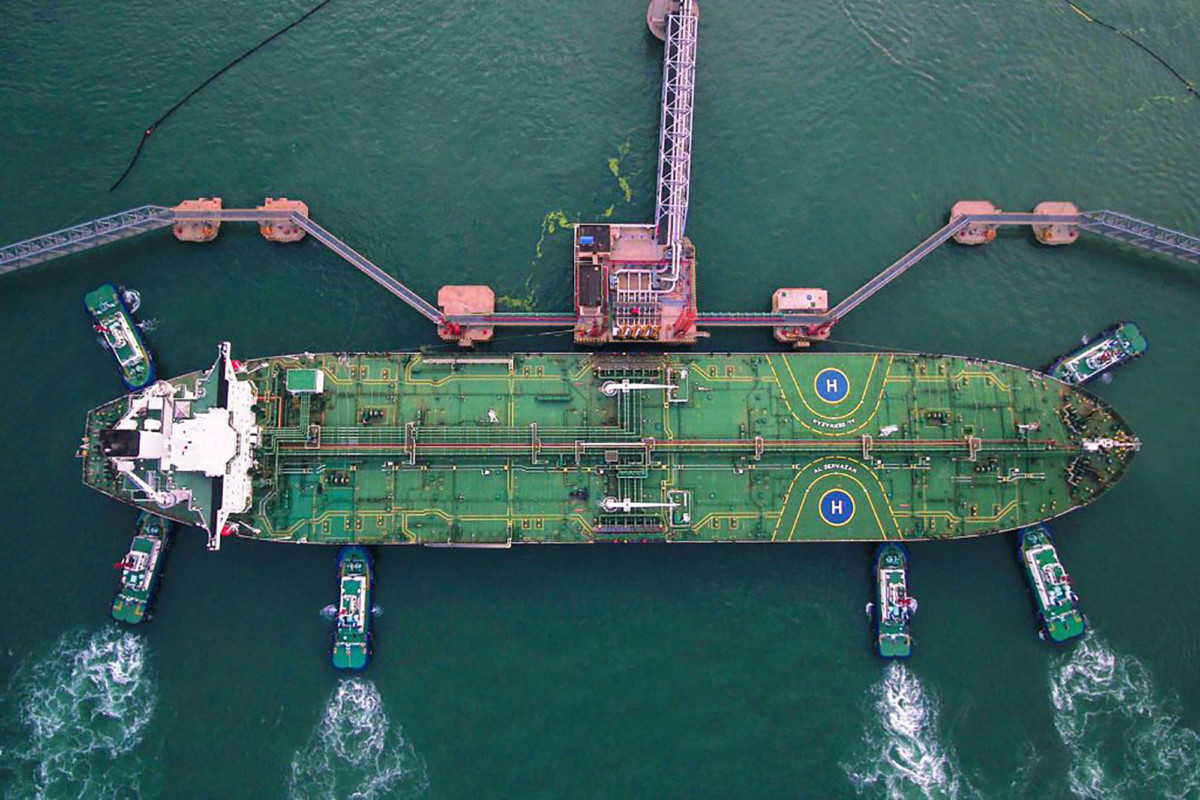Economy
Oil Traders Made Billions in 2019 as Conflict Shook the Market

(Bloomberg) — The world’s largest energy traders enjoyed one of their best-ever years in 2019 as pipeline outages, dramatic changes in ship fuel regulations and Middle East conflicts shook up the global oil market.
The bonanza extended beyond the independent traders like Vitol Group and Trafigura Group Ltd. to the in-house units of oil giants Royal Dutch Shell Plc, Total SA and BP Plc, which made billions of dollars in profits.
“By all accounts, 2019 was among the best years ever for the energy trading industry,” said Marco Dunand, the chief executive of Mercuria Energy Group Ltd., one of the five largest independent oil traders.
For the independents, the bumper year all but guarantees a fat bonus season for a group of companies that’s largely owned by their executives and senior staff. For the European oil companies, the trading boom will help Shell, BP and Total to weather a tough year in other parts of their business.
In interviews with senior traders and top executives, the consensus is that the industry benefited from a lucky mix of factors in the oil market. Recent investments in trading natural gas, power and liquefied natural gas also started to bear fruit.
First, a series of supply outages boosted the premiums that oil refiners pay over the benchmark price for some crudes. Early in 2019, Washington imposed sanctions on Venezuela, disrupting flows. Then, Russian shipments into Europe via the key Druzhba pipeline were halted after oil was tainted with a corrosive pollutant. And in September, Saudi exports were hindered after a terrorist attack against the country’s most important petroleum facility.
Some traders also profited from the so-called IMO2020 rules that force the world’s merchant shipping fleet to use fuel with a lower sulfur content. The rules have upended the oil-refining and maritime industries, causing gyrations in the price of fuel-oil and marine diesel.
The results provide some breathing room for a sector that’s under assault from falling margins. Brent crude, the world’s most important benchmark, traded in a relatively narrow range of $52.51 to $75.60 a barrel through the year.
Vitol, Glencore, Shell, BP and Total all declined to comment on their results.
The trend was already clear in the results of Trafigura, which reports earlier than others due to a fiscal year ending in September. Trafigura said its oil unit delivered a record gross profit of $1.7 billion last year.
$1 Billion Year
Elsewhere executives also expect a stellar year, even as they caution that they haven’t yet audited their financial statements or decided on the final writedowns against 2019 results. The oil-trading unit of Glencore Plc., for example, enjoyed its best-ever result, according to people familiar with the matter. One person said Glencore expects to report earnings before interest and taxes of more than $1 billion in oil trading.
At Gunvor, chief executive Torbjorn Tornqvist said 2019 was “up there among the best years ever” for the trading house, in part thanks to its expansion into LNG, super-cooled natural gas that can be transported by vessel. “We have a good year across the board.”
Vitol, the world’s largest independent oil trader, expects to report earnings near $2 billion, one of its best results, according to a person familiar with the matter. Mercuria also enjoyed a “very good year,” its chief executive said.
Inside Big Oil, it was also a trading bonanza. Although better known for their oil fields, refineries and pump stations, Shell, BP and Total also run in-house trading businesses that are larger than the better-known independent dealers. Shell alone trades the equivalent of 13 million barrels a day of oil, dwarfing the nearly 7.5 million barrels a day at Vitol.
For BP and Shell, 2019 was one of the best years ever in trading, making several billions dollars, according to two people familiar with the matter. Shell alone made at least $1 billion in fuel-oil trading linked to the IMO2020 changes.
The results came despite mounting legal and regulatory pressures on some of the biggest trading houses. Glencore is under investigation by the U.S. Department of Justice. Meanwhile, Vitol and Trafigura had their Geneva offices raided by Swiss prosecutors as part of a bribery investigation in Brazil. And Gunvor had to pay $95 million in Switzerland to settle a case that saw a former employee pay bribes to secure oil deals in the Republic of Congo and Ivory Coast.
-

 Banking & Finance2 months ago
Banking & Finance2 months agoOman Oil Marketing Company Concludes Its Annual Health, Safety, Environment, and Quality Week, Reaffirming People and Safety as a Top Priority
-

 News2 months ago
News2 months agoJamal Ahmed Al Harthy Honoured as ‘Pioneer in Youth Empowerment through Education and Sport’ at CSR Summit & Awards 2025
-

 OER Magazines2 months ago
OER Magazines2 months agoOER, December 2025
-

 News2 months ago
News2 months agoAI Security Conference 2025 Hosted by Securado Highlights the Changing Cybersecurity Landscape
-

 Insurance1 month ago
Insurance1 month agoSupporting Community Wellness: Liva Insurance Sponsors Muscat Marathon 2026 with Free Health Checkups
-

 Interviews1 month ago
Interviews1 month agoEXCLUSIVE INTERVIEW: TLS Rebranding Marks Strategic Leap Toward Innovation, Sustainability & Growth
-

 Insurance1 month ago
Insurance1 month agoLiva Insurance Supports Community Wellness Through “Experience Oman – Muscat Marathon 2026”
-

 Investment2 weeks ago
Investment2 weeks agoLalan Inaugurates Its First Overseas Manufacturing Facility, Marking Sri Lanka’s First Investment in SOHAR Freezone





























